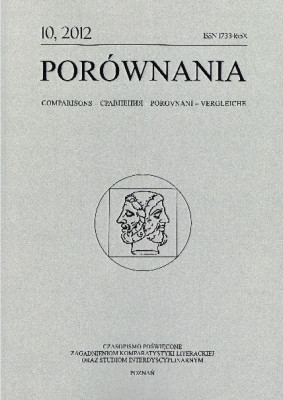Despair and Longing for A Miracle – Miłosz in Opposition to Zdziechowski
The author discusses the relationship between Czesław Miłosz and Marian Zdziechowski (a historian of literature and of ideas, and a Christian thinker), on the basis of the essay Religijność
Zdziechowskiego (Zdziechowski’s Religiosity, my own translation) from 1943 and of the poem
Zdziechowski from the volume To (It, my own translation) from 2000. The key problem in both
texts is assimilation of the philosophy of pessimism into Christianity. Having posed the eternal
question of theodicy: how is it possible for evil to exist in a world created by a good God, Miłosz
presents Zdziechowski’s answer, reminiscent of Charles Secrétan and Vladimir Solovyov, namely, that the world is tainted with evil, it ischaotic and irrational and, as such, could not have been made by the hand of God. However, the reality of evil, which negates the existence of the Creator and which leads to despair, is juxtaposed with the voice of inner experience, which recognizes the presence of God as love. That logical contradiction, which demands that reason transcends its own limitations, directs the thinker toward the discovery of God as an impossible but real miracle which ought to be affirmed. As he depicts the professor, Miłosz recognizes some of his own features in the portrait: the realism of experience which has its ori-gins in sensitivity to human suffering, heroism of faith and of religious thinking, and “hunger for God” – a spiritual yearning for another dimension, which not only inspires the intellect but also stirs the imagination.
| Article Title | Type | Size |
|---|---|---|
| Lidia Banowska Rozpacz i pragnienie cudu Milosz wobec Zdziechowskiego | [pdf] | [236 KB] |
